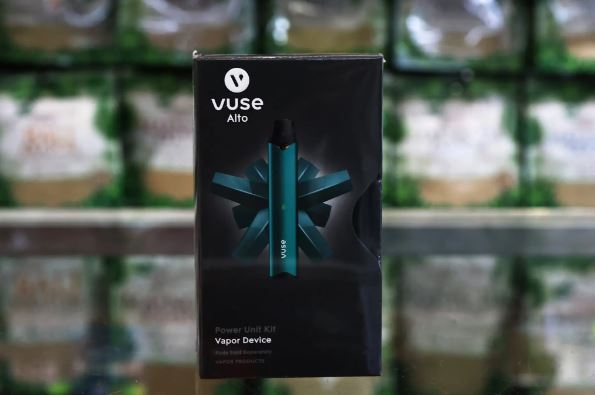When the FDA told R.J. Reynolds to cease making and selling its best-selling Vuse Alto menthol electronic cigarettes, the company promptly announced it would dispute the FDA’s decision in court.
On Thursday, the FDA refused Reynolds’ applications to permanently sell its best-selling menthol products, citing the company’s failure to fulfil federal rules for the e-cigarettes to give more health benefit than danger. The F.D.A. concluded that the possibilities for helping traditional smokers stop was exceeded by the risks of recruiting young people to the popular menthol and flavoured goods like Vuse vapes.
Recent rejections of menthol e-cigarettes by the federal government have been seen as evidence of the agency’s tightening restrictions on menthol products by some public health professionals. Goldman Sachs estimates that by the end of this year, the F.D.A. will have taken steps towards banning all menthol cigarettes, including Newports, Reynolds’ best-selling brand with annual sales of $7.5 billion.
According to a statement released by R.J. Reynolds’ parent company British American Tobacco, the F.D.A.’s recent finding “flies in the face of proven science.” Reynolds may be able to keep selling the contested Vuse goods indefinitely since the business has promised to challenge the ruling in court.
The courts have ruled that Juul and other e-cigarette manufacturers can keep selling their wares while they challenge the agency’s decision.
If the F.D.A. wins its case against Reynolds, the corporation will suffer a major financial setback. According to Goldman Sachs’ analysis of the e-cigarette business, menthol vapes make up around 29 percent of the U.S. e-cigarette market, totaling $1.6 billion in sales. About 40% of the market is made up of Vuse goods, which includes tobacco-flavored items.
The Food and Drug Administration’s jurisdiction to regulate the sale of electronic cigarettes began in 2016. It has turned down many requests for approval to sell new vaping devices or keep existing ones on the market. The deadline for a decision on all applications submitted to the agency is December 31 of this year.
A recent poll of middle and high school kids found that Vuse vapes were a popular option among those who used e-cigarettes, and antismoking groups and others have encouraged the F.D.A. to more closely regulate the industry.
Reynolds has made an effort to present its goods to authorities as safe and legal alternatives to minors who may be using illegal e-cigarettes. The business voluntarily discontinued its mixed berry flavour after the F.D.A. on Thursday rejected marketing approval for the product.
But Reynolds also objects to several other constraints. After being advised by the California attorney general not to advertise goods as having a “cooling” flavour, the business has filed court in California to overturn the restriction.
Campaign for Tobacco-Free Kids president Yolonda Richardson praised the FDA’s decision on Vuse, calling it “one of the strongest actions” the agency has taken to rid the market of illegal, flavoured e-cigarettes and a “necessary step” towards ending the youth e-cigarette crisis in the United States.
Assistant professor of government at Georgetown University and expert on tobacco control policy Alex Liber recently published research that found that countries that banned flavoured e-cigarettes saw an uptick in cigarette sales.
According to him, the FDA seems set on approving just cigarette-flavored vapes. The government has previously denied requests for approval of menthol e-cigarettes on the grounds that their appeal to minors outweighs any potential advantages to adults.

